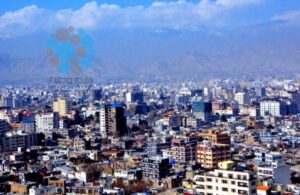KABUL (SW) – Lack of electricity in Kabul has caused industrial factories to face serious problems causing delay in productions, loss of orders and revenue.
Concerned about the power outages, the officials of the union of Afghan industrialists say that the production of factories in the city of Kabul has decreased by 40% in the last two months due to the lack of electricity.
Abdul Jabbar Safi, the head of the Afghanistan Industrialists’ Union, told Salam Watandar that it has been more than two months that the industrial factories in the city of Kabul have not had regular and sustainable electricity, and this has caused a decrease in their production. He adds: “There are many problems in the electricity sector. In the past, we had 24-hour electricity in industrial parks. But we don’t have it now. For this reason, factories have reduced their production and are not operating normally. This causes the factories to lose their position in the market.”
On the other hand, the officials of a number of industrial factories in the industrial parks of Kabul, complaining about the lack of electricity, say that the lack of electricity has caused their business to collapse.
Shamal Khan Mokhlis, the owner of “Khaled Younes Etihad Steel Mill” says that due to lack of electricity, the production volume of his factory has been reduced by half. He adds: “Although the lack of electricity was there in the past as well but now it is too much. Because of this, our consumption has increased and our products are very expensive. We are facing damages and if it continues, our activity will reach zero, which is a big economic blow.”
Rafiullah Ahmadyar, the manager of the “Omid Bahar” production factory, who works in the soft drink production sector, says that for two months, he has been using part of his company’s income to provide the required electricity. He adds: “Electricity is the most basic element for industries. In the shortage of electricity, our expenses have increased. We are obliged to maintain the market, we have to use the generator, which increases our expenses and it is difficult for an industrialist to make it.”
Officials in industrial factories want the Da Afghanistan Breshna Sherkat (DABS) to address this problem as soon as possible and provide the electricity needed by these factories.
Abdurrahman Jumazai, the manager of one of the manufacturing plants in Pol Charkhi Industrial Park, says: “We hope this problem will be solved. The sooner it is resolved, the more beneficial it is to industries because production factories are based on electricity, and for the prosperity of business and the growth of the industry, we need continuous electricity.”
However, officials at the DABS accept the lack of electricity in industrial factories in Kabul city and say that due to the drought and lack of electricity production resources in Kabul city, this company provides only 13 hours of electricity to industrial factories. Hekmatullah Meyvandi, the spokesman of DABS, said: “In the past, we used to supply 24-hour electricity to industries but now they have 13 hours of electricity because electricity is not normal like before. Again, we are trying to solve this problem. This problem will be partially solved with the implementation of the 500 kV electricity project from Turkmenistan but it needs time.”
According to the statistics of the Afghanistan Industrialists’ Union, 1100 industrial factories are operating in Pol Charkhi Industrial Park, Mohammadi Industrial Park, Deh Sabz Industrial Park and Arghandi Industrial Park and other parts of Kabul city.
ENDS







